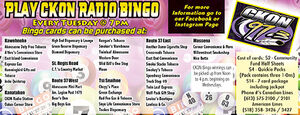Summer is the Best Time to Save Money
By Kaniethonkie
When it comes to saving you don’t need money to begin, and summer is the best time of year to get ahead on your savings or to finally start saving money. Some lists for saving money tell you to watch your buys, tuck it away, or manage your 401K better. Yet what about the rest of us who for one reason or another are scrapping the bottom of the barrel in this economy? As a general rule - every person should have at least 3 months of pay saved in case of an emergency or the worst of everyone’s money fears – you lose your jobs. Three months savings gives you a buffer to pass through the emergency or until you find another job. Keep these tips in mind and you’ll find you have extra cash to stash to finally start a “real” saving account.
SUMMER CLOTHES AND
SHOES.
Hey, its summer and all you want to wear is a colorful pair of flip-flops, and those are inexpensive. Flip-flops, sandals, and other summer shoes are cheaper footwear than winter footwear. Clothes are generally cheaper during the summer. So now is a great time to put away those extra savings into a saving account.
AVOID UNNECESSARY
OUTINGS
Running out to the store every time you need something can cost gas and time. Living in the North Country, well the closest grocery store is just over 8 miles away. Both gas and time are extremely valuable. It has been noted that those who go to the store for one item, usually come out with more than that. (Remember the last time you went into Wal-Mart for one item...) Instead combine errands into one or two well-planned trips a week and always use a shopping list. Shopping from a prepared shopping list often keeps you from you from falling prey to impulse buys, which happen more often when you shop aimlessly multiple times a week and without a list.
ALWAYS USE COUPONS
There is no excuse, if there is a good coupon for an item you usually buy, then use it. Better yet, if you’re local grocery store allows coupon doubling, or tripling then save your grocery shopping and coupons for that day. Newspapers, inserts, and online websites carry a host of coupons for many products that are household necessities.
STOP BAD HABITS
Smoking and over-drinking can be destructive to more than just your health, they can make hardships for your family and budget. Looking from a purely monetary standpoint the average smoker will burn through $31.50 a week. That is $1,638 dollars a year! Plus smokers cost more to insure, and care for health wise. There are many local resources available to help stop smoking.
ALWAYS COMPARISON SHOP
Comparison shopping is one of the single greatest tools a smart shopper can use. The price of an item is often times based on how badly you need it and how many other products rival it. When it comes to electronics, comparison shopping in stores and online will give you a better picture of how much to pay for your item. Plus you never want to underestimate the reviews of a product by those who have bought it! With food you will learn that some items are worth buying brand name, for whatever reason - like canned black olives. On the other hand most food items are a better buy from the generic brand. Comparison shopping is a skill each buyer will develop over time, but it is worth it. And if you carry a smart phone – this can be your best tool for shopping wisely. There are many apps you can download to compare and find the cheapest price for an item.
USE CHEAP BUT EFFECTIVE CLEANERS
We are not saying you should spring for the chemical special in your local stores, there is a better way. Baking soda, white vinegar, hydrogen peroxide, rubbing alcohol, and borax are some great cheap places to start. Most of these will remove odors, kill germs, and leave a shine that has no chemical residue to worry about. You save a load not buying expensive cleaners and here is a secret, they are all still green cleaners. Check back on past IT Consumer Corner columns for an article just on cleaning safely and inexpensively.
PUNCTUALITY
What? Indian Time is no longer in vogue. But how can being on time help me save money? Being late to work can cost you your job, having a job is a pillar of saving money. If you don’t lose your job you could still lose money for every minute you are not working. Or how about your bills? Being late for paying your bills can cost you in lots of ways. First, late payments can go on a credit history costing you money in the long run. Second, some bills tack on extra money for being late in your payment. Finally, credit cards will dramatically penalize you for late payments. Simply put - be punctual and save money.
TAKE ADVANTAGE OF FREE SAMPLES
It may seem silly, but getting free samples can give you serious savings. They also keep you from making some bad buys. Samples like shampoo, lotions, and soaps can keep you from having to buy these items so often. You will also find that “product” you could not wait to try, but could not afford to buy. What is more, you get the excitement that comes with getting free stuff in the mail! Again there are many websites for receiving free samples in the mail – make sure you read the fine print before committing to any site.
DO YOUR OWN OIL CHANGE
It seems daunting at first, but can be quickly learned. Plus the average do-it-yourself oil change costs 30%-50% less then had you taken it to a mechanic. You really don’t want to do it yourself; there are local shops that offer quick and inexpensive oil changes. Changing your oil regularly will save on future repairs on your vehicle as well.
MAINTAIN A MINIMUM BANK BALANCE
This is easier than you think. Set aside two amounts to save. One is for your new “Minimum Balance” and the other for you new saving account. Twenty five, fifty, one hundred dollars, whatever amount you can afford. Do not touch this money. The checking account “minimum balance” you have just set for yourself gives you a buffer for purchases when you are out and about. Many people have a tendency to overdraw, but having a buffer like this can keep you from suffering the expensive fees and penalties of doing so. Plus you learn some self-control by leaving something there that you cannot use.
For the other amount - stash that in your saving account. And leave it there. The minimum balance in your checking account is your buffer to use only if you’re really need to and you saving account is not to be used at all. It all adds up and in time you will feel the security of having always having a minimum balance in your checking account and a growing saving account.









Reader Comments(0)